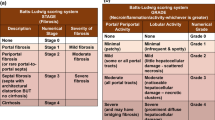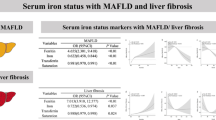Abstract
Aim
The reported association of the leptin receptor (LEPR) protein with hepatocellular carcinoma (HCC) carcinogenesis prompted us to evaluate whether genetic polymorphisms of the LEPR gene affect susceptibility to HCC and its clinicopathologic characteristics.
Methods
A total of 417 subjects who were diagnosed with HCC and 551 age- and sex-matched subjects without HCC were enrolled in this study. All subjects had chronic hepatitis B virus (HBV) infection. Three single nucleotide polymorphisms (SNPs) of the LEPR gene were determined.
Results
The genotype frequencies of Lys109Arg and Gln223Arg differed significantly between HCC and non-HCC subjects (both p < 0.001). For the Lys109Arg polymorphism, HCC subjects had a higher prevalence of 109Arg/Arg than non-HCC subjects. The 109Arg/Arg carriers had a significantly higher adjusted risk of HCC than the 109Lys/Lys carriers. For the Gln223Arg polymorphism, subjects with the 223Arg/Arg genotype had a significantly higher risk of HCC than those with the 223Gln/Gln genotype. The Lys656Asn SNP did not affect the HCC risk. Haplotype analyses showed that subjects with 109Lys-656Lys-223Arg and 109Arg-656Asn-223Arg haplotypes had an increased HCC risk, while the 109Lys-656Lys-223Gln and 109Lys-656Asn-223Gln haplotypes had protective effects against HCC development. None of these polymorphisms were related to the clinicopathologic features of HCC.
Conclusion
The Lys109Arg and Gln223Arg polymorphisms of the LEPR gene are associated with susceptibility to HCC but not with its clinicopathologic features. These polymorphisms may represent genetic markers for the risk of HCC in the context of chronic HBV infection.
Similar content being viewed by others
References
McGlynn KA, London WT. The global epidemiology of hepatocellular carcinoma: present and future. Clin Liver Dis. 2011;15(2):223–43, vii–x.
Maillard E. Epidemiology, natural history and pathogenesis of hepatocellular carcinoma. Cancer Radiother. 2011;15:3–6.
Nishiguchi S, et al. Epidemiology of HBV related hepatocellular carcinoma in Japan. Nihon Rinsho. 2004;62(Suppl. 8):377–80.
Hayashi PH, Di Bisceglie AM. The progression of hepatitis B- and C-infections to chronic liver disease and hepatocellular carcinoma: epidemiology and pathogenesis. Med Clin North Am. 2005;89:371–89.
Tanaka M, et al. Hepatitis B and C virus infection and hepatocellular carcinoma in China: a review of epidemiology and control measures. J Epidemiol. 2011;21:401–16.
Andrisani OM, et al. Gene signatures in hepatocellular carcinoma (HCC). Semin Cancer Biol. 2011;21:4–9.
De Giorgi V, et al. Gene profiling, biomarkers and pathways characterizing HCV-related hepatocellular carcinoma. J Transl Med. 2009;7:85.
Doh KO. Hepatocellular carcinoma-related gene targeting using the large circular antisense library. Oncol Rep. 2008;20:905–11.
Suzukawa M, et al. Leptin enhances survival and induces migration, degranulation, and cytokine synthesis of human basophils. J Immunol. 2011;186:5254–60.
Israel D, Chua S Jr. Leptin receptor modulation of adiposity and fertility. Trends Endocrinol Metab. 2010;21:10–6.
Umemoto Y, et al. Leptin stimulates the proliferation of murine myelocytic and primitive hematopoietic progenitor cells. Blood. 1997;90:3438–43.
Dieudonne MN, et al. Leptin mediates a proliferative response in human MCF7 breast cancer cells. Biochem Biophys Res Commun. 2002;293:622–8.
Ishikawa M, et al. Enhanced expression of leptin and leptin receptor (OB-R) in human breast cancer. Clin Cancer Res. 2004;10:4325–31.
Xu YJ, et al. Expression and clinical significance of leptin, the functional receptor of leptin (OB-Rb) and HER-2 in non-small-cell lung cancer: a retrospective analysis. J Cancer Res Clin Oncol. 2011;137:1841–8.
Mix H, et al. Expression of leptin and leptin receptor isoforms in the human stomach. Gut. 2000;47:481–6.
Ning HM, et al. Leptin and its receptor in acute myeloid leukemia. Zhongguo Shi Yan Xue Ye Xue Za Zhi. 2010;18:234–7.
Ribatti D, et al. Leptin–leptin receptor are involved in angiogenesis in human hepatocellular carcinoma. Peptides. 2008;29:1596–602.
Wang SN, et al. Potential prognostic value of leptin receptor in hepatocellular carcinoma. J Clin Pathol. 2006;59:1267–71.
Stefan N, et al. The Gln223Arg polymorphism of the leptin receptor in Pima Indians: influence on energy expenditure, physical activity and lipid metabolism. Int J Obes Relat Metab Disord. 2002;26:1629–32.
Snoussi K, et al. Leptin and leptin receptor polymorphisms are associated with increased risk and poor prognosis of breast carcinoma. BMC Cancer. 2006;6:38.
Li Y, et al. The role of leptin receptor gene polymorphisms in determining the susceptibility and prognosis of NSCLC in Chinese patients. J Cancer Res Clin Oncol. 2012;138(2):311–6.
Yapijakis C, et al. Association of leptin-2548G/A and leptin receptor Q223R polymorphisms with increased risk for oral cancer. J Cancer Res Clin Oncol. 2009;135:603–12.
Pechlivanis S, et al. Genetic variation in adipokine genes and risk of colorectal cancer. Eur J Endocrinol. 2009;160:933–40.
Wang SN, et al. Potential role of leptin expression in hepatocellular carcinoma. J Clin Pathol. 2006;59:930–4.
Gotoda T, et al. Leptin receptor gene variation and obesity: lack of association in a white British male population. Hum Mol Genet. 1997;6:869–76.
Shi YY, He L. SHEsis, a powerful software platform for analyses of linkage disequilibrium, haplotype construction, and genetic association at polymorphism loci. Cell Res. 2005;15:97–8.
Yiannakouris N, et al. The Q223R polymorphism of the leptin receptor gene is significantly associated with obesity and predicts a small percentage of body weight and body composition variability. J Clin Endocrinol Metab. 2001;86:4434–9.
Furusawa T, et al. The serum leptin level and body mass index in Melanesian and Micronesian Solomon Islanders: focus on genetic factors and urbanization. Am J Hum Biol. 2011;23:435–44.
Jarde T, et al. Leptin and leptin receptor involvement in cancer development: a study on human primary breast carcinoma. Oncol Rep. 2008;19:905–11.
Kaligin MS, et al. C-kit is a marker of human pancreatic endocrinocyte stem cells. Morfologiia. 2011;140:32–7.
Chung WK, et al. Exonic and intronic sequence variation in the human leptin receptor gene (LEPR). Diabetes. 1997;46:1509–11.
Kote-Jarai Z, et al. Association between leptin receptor gene polymorphisms and early-onset prostate cancer. BJU Int. 2003;92:109–12.
Liu CL, et al. The roles of serum leptin concentration and polymorphism in leptin receptor gene at codon 109 in breast cancer. Oncology. 2007;72:75–81.
Qu Y, et al. The haplotype identified in LEPR gene is associated with type 2 diabetes mellitus in Northern Chinese. Diabetes Res Clin Pract. 2008;81:33–7.
Acknowledgments
This study was supported by grant no. ZJ09-112 from the Zhenzhou Science Development Project. The authors thank Dr. Li Jun for his help with the statistics.
Author information
Authors and Affiliations
Corresponding author
Rights and permissions
About this article
Cite this article
Li, Z., Yuan, W., Ning, S. et al. Role of Leptin Receptor (LEPR) Gene Polymorphisms and Haplotypes in Susceptibility to Hepatocellular Carcinoma in Subjects with Chronic Hepatitis B Virus Infection. Mol Diagn Ther 16, 383–388 (2012). https://doi.org/10.1007/s40291-012-0008-1
Published:
Issue Date:
DOI: https://doi.org/10.1007/s40291-012-0008-1




